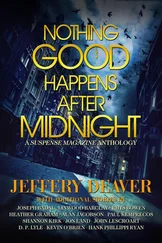“Firing the others?” Potter wondered.
Harrison considered. “Too far. Suspension, no pay. Disregard of orders. Make it six months.”
Beaufort stirred.
“Three months.” Harrison received a nod from the detective in reply.
Potter said, “What about the disabled thing?”
“Detention can handle it.” Harrison caught Beaufort’s troubled face. “You and Al Rodriguez were fine spying on him, but you’re not all right with this?”
Beaufort said, “The spying was for show. So the press — and the public — could see you were taking your order about consultants seriously. I never thought you’d actually want to collar him.”
“It has to happen. Or I lose credibility. And Roland is all over me. We need to find a prosecutor to get on board.”
Potter said, “O’Shaughnessy. He’s young. He’ll do anything we tell him.”
Harrison said, “Call Rodriguez. Have him handle the bust. And arrange for Rhyme to come here. I don’t want any raids on his town house.”
“Yessir.”
“No drama. He’s in a wheelchair. Let’s handle it with kid gloves.”
“While we book him in the Tombs,” Beaufort muttered.
“While we do just that,” Harrison said, putting what he thought was just the right amount of whipcrack into his voice, not pleased with Beaufort’s insubordination, tepid though it was.
Potter’s phone hummed with a text. He read and frowned.
Harrison sighed. “Another broadside from Roland?”
“No, seems there’s a disturbance on Broadway, Herald Square.”
“What is it?”
“Demonstrators, protesters, about Verum. Nobody’s sure yet. But Meyer’s department store’s burning.”
He glanced at Beaufort. “Call Rodriguez. Have him take care of the Rhyme arrest.” Then to Potter: “Call the chief and find out about this thing in Midtown.” He scoffed and cast his gaze out upon the city. “Riot. Just what I need.”
Alonzo Rodriguez slicked out his handlebar mustache, using the pocket mirror he carried for that purpose.
Fifty-two and somber and a cop blue to his heart, he had collared a respectable number of criminals in his days on the street. His arrest record was good and his arrest-to-conviction record exemplary. All of the perps he collared were guilty but many of them evoked some sympathy within Rodriguez. They were family men and women, they had fallen on hard times, they had children to support and the fact was the majority of them were in the slammer for non-violent drug offenses.
But the one thing that he couldn’t stand and had no patience for was a law enforcer who’d broken the rules.
That offense should bring down the wrath of God.
His phone hummed. “Yes?”
His assistant said in her pleasant alto voice, “Lincoln Rhyme is here, sir. He’s coming up with his aide.”
“Yeah, okay.” Rodriguez supposed he sounded gruff. No, he knew he sounded gruff. But try though he might, he could never deliver a single syllable that didn’t have rough edges, like a piece of chipped shale.
He opened a bottom desk drawer and took from it a compact Glock 26. As a commander he hadn’t carried a weapon on the job in several years. He kept it loaded, though not chambered. Glocks have light pulls. Now, he racked a round. Careful to keep his finger away from the trigger, he slipped the weapon into the holster, which he clipped to his belt.
Rodriguez rose and walked into the ante office. His assistant, a middle-aged woman with frothy brunette hair sprayed firmly into place, nodded. Her face was troubled. She wouldn’t know what exactly was going on — her boss with a weapon ? — but she would sense that the outcome wasn’t going to be good.
In this, she was correct.
Down the hall, then into the elevator for a descent of several floors. He walked into Robbery. He approached a couple of detectives he knew. They were large men, one Anglo, one Black. They exchanged greetings.
“Need to borrow you guys for about fifteen. You free?”
With glances of curiosity toward each other, they said they were. One of them then noted the gun, and his expression made clear he had perhaps never seen a commander with a weapon affixed to his belt. “What’s up, Al?”
“Gotta collar somebody. I just want backup.”
“Well, sure. But only fifteen minutes? Where we going?”
“Not far.”
“I had an office here,” Lincoln Rhyme was telling Thom. “Back in the day.”
They were on the twelfth floor of OnePP, in the hallway beside the elevators, one of which they’d just exited.
The NYPD, like many big governmental organizations, was forever renaming its offspring. Now the Crime Scene Unit was part of the Detective Bureau’s Forensic Investigation Division. When Rhyme, a captain, ran the CSU, it was part of Investigation Resources.
He continued, “I didn’t spend much time here. I was usually in the field or the lab.”
Other differences between then and now: OnePP had been “the Big Building.” The uniforms had been redesigned, and there were more women, more people of color. He inhaled. Ah, but the cleanser was the same. At least that was his olfactory recollection, though he allowed that it could easily be imagination.
He said to Thom, “Brutalist.”
“What?” The aide was frowning.
“The style of the building. Architectural style.”
“That’s not real.”
“No, it is. Concrete, angular, colorless. Ugly. Popular in the sixties and seventies.”
“If I was the architect behind the movement,” Thom said, “I’d hire a PR firm to come up with a better name.”
The style was vastly different from the old headquarters at 24 °Centre Street, which had housed the NYPD from 1909 to 1973. A more beautiful building was not to be found in Lower Manhattan. Victorian and rococo, sweeping archways and domes and spires. There was much marble and brass and beveled glass.
They continued down the hall to the office of Commanding Officer Brett Evans, the man who had volunteered to set Rhyme up with work in New Jersey and who had run interference for him with Potter and Beaufort.
Thom opened the door and they entered the ante office.
“You must be Mr. Rhyme,” the personal assistant said. She was in her thirties, with quite dark skin and deep, black eyes. She wore a stylish lavender suit and Rhyme noted on the large desk two criminal law casebooks into which were wedged yellow pads, thick with scrawls. He wondered which law school she was attending at night.
“Ms. Williams,” he said, noting the placard. “We’re early.”
She was completely unfazed that he was in a complicated wheelchair. “Commander Evans’s on the phone. It should just be a minute or two.”
It was just a moment later that Rhyme heard the door open once more and a voice said, “Lincoln.”
He turned. Commander Al Rodriguez was accompanied by two large, unsmiling detectives. The jacket of one of the men was tugged back, perhaps so he could have easy access to his boxy gun. The gold shields looked Rhyme over and nodded. Rodriguez glanced at Thom. Rhyme couldn’t remember if they’d been introduced. Maybe. He didn’t bother to do so now.
“Sad day,” Rodriguez said.
Rhyme was silent. There was no point in denying or validating the comment; Rhyme was interested in emotion only to the extent that blood at a crime scene contained increased testosterone and decreased cortisol, which suggested the bleeder had been angry or agitated, which might in turn allow a helpful inference about what had happened.
Other than that? Observations about feelings good or feelings bad were invariably a waste of time.
The personal assistant, Williams, appeared uncertain. “Commander Rodriguez. Commander Evans has a meeting with Mr. Rhyme in a few minutes. Is there something I can do for you?”
Читать дальше
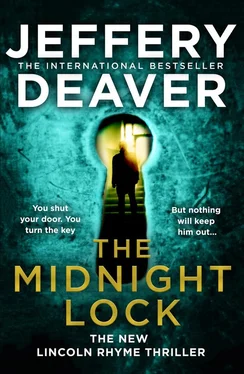
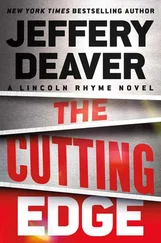


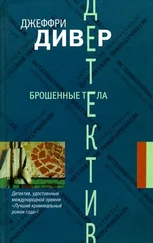

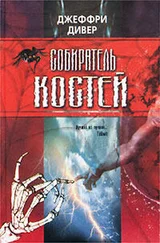
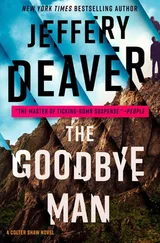
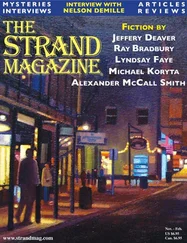
![Джеффри Дивер - Where the Evidence Lies [A Lincoln Rhyme Short Story]](/books/403782/dzheffri-diver-where-the-evidence-lies-a-lincoln-r-thumb.webp)


